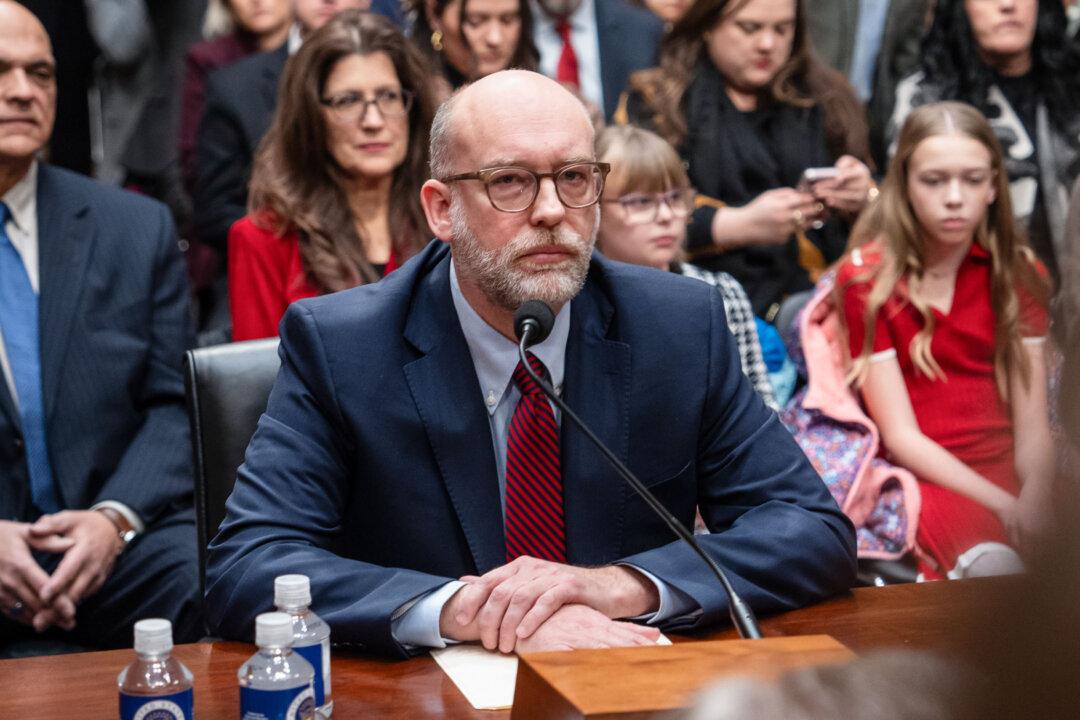Russell Vought, President Donald Trump’s nominee to head the Office of Management and Budget (OMB), was questioned over a series of executive orders signed this week that targeted approved congressional funding.
Hours after taking office on Jan. 20, Trump signed executive orders directing government agencies to suspend billions of dollars in funds from the Inflation Reduction Act and the Infrastructure Investment and Jobs Act.





